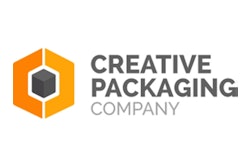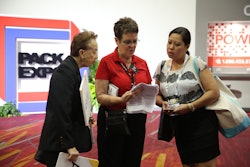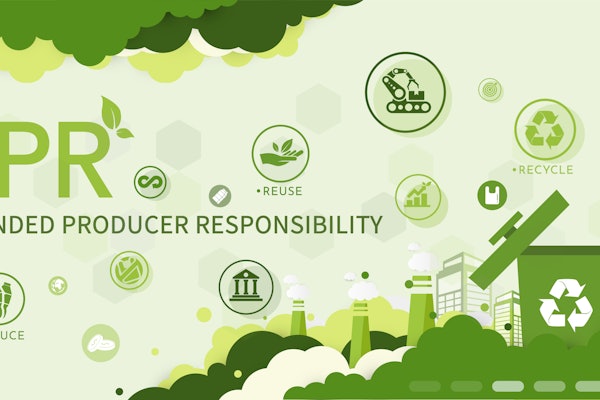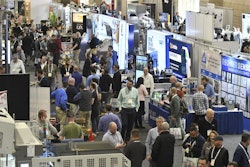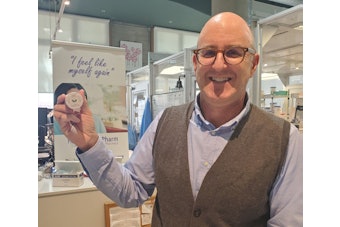Quick hits:
- The LifeMade Bioffex shipper is sourced entirely from renewable materials—PLA from corn and sugar beets—using zero petroleum in the material itself.
- There are additional resource reductions based on the manufacturing of Bioffex products: the technology requires 81% less water to manufacture compared to EPS, less energy, and cuts greenhouse gas potential.
- Performance is comparable to EPS shippers.
- The shipper is ideally disposed of in industrial composting facilities, reducing to safe and usable compost in well under one month.
Related to this episode:
- BioBased Shippers Cut Petroleum Sourcing By 100%
- Take Five Video: 6 Sustainability Drivers in Temperature-Controlled Logistics
- Q&A: Non-Profit Launches Sustainable Procurement Guide in Healthcare
- Gain an in-depth look at PMMI's research on automation and hear from experts on industry topics by visiting PMMI's Business Intelligence video library.
 | Read the transcript below: |
I’m Keren Sookne for Take Five video with Healthcare Packaging.
Today we’re talking about a new biobased shipper for temperature-controlled products that uses zero fossil carbon in its design.
For years, EPS has been the gold standard in passive temperature-controlled shipping. It’s cost-effective, performs well, and it’s lightweight. And in the life sciences, once something’s validated, companies have traditionally stuck with a packaging system. But with brand owners in pharma and food looking to cut their carbon footprint, and reduce waste to landfill, there’s a lot of willingness to make the switch lately, especially in logistics.
LifeMade launched its Bioffex technology this year, with potential applications in healthcare, food, and more. It began as “Project Popcorn” to use PLA (or polylactic acid) to produce shippers. PhDs worked continuously for years on the now patented technology.
The shipper is sourced entirely from renewable materials—corn and sugar beets—and despite its name, “polylactic acid” is not an acid but a polyester. Zero petroleum is used in the material itself. Lifemade buys pelletized PLA from a raw material manufacturer, and they use their own patented process to create an expanded bead foam. This means the form factor is similar to products on the market.
Now let’s talk reduction in natural resources: Beyond the 100% reduction in petroleum from the raw materials compared to EPS, there are additional resource reductions based on the manufacturing of Bioffex products.
Water usage: The technology requires 81% less water to manufacture compared to EPS. It doesn't require as much steam to produce, and those water savings can be included in sustainability metrics.
Greenhouse gasses: Eliminating the hydrocarbon gas needed to expand the material reduces greenhouse gas potential by 83% over EPS in the foaming and molding of the products themselves.
In terms of energy usage: This tech may use up to 50% less energy compared to EPS. Savings depend on the size and dimensions of the container, but in using less steam, there is subsequently less heat energy required to create steam.
Let’s talk end of life for Bioffex shippers. LifeMade wants the customer to have multiple paths of disposal including composting. Of course, end of life is critical for new single-use products… many companies strive to implement reusable systems, but they’re not a fit for every application.
Ideally, Bioffex products are disposed of via industrial composting facilities. Once the shipper enters this particular stream, it degrades quickly, reducing to safe and usable compost in well under one month.
Now industrial composting sites aren’t everywhere yet, and the company notes that sites like FindaComposter.com, plus communication with end users on proper composting and disposal are really key.
They’re also currently collecting data in landfill environments, and they’re in the process of becoming home compostable-certified.
Even though this tech is optimized for aerobic composting, in biologically active landfill conditions it’s showing swifter degradation than their EVG cooler which is designed to break down in those landfills in four years.
They’ve secured a USDA BioPreferred certificate at a 100% level. which falls under purchasing criteria some orgs and it may one day be a part of industry KPIs for sustainability initiatives.
Ultimately, it’s a much more favorable end of life story than that of EPS, while exhibiting comparable performance.
And as LifeMade’s Scott Dyvig points out, a lot of the sustainability is already ‘banked’ prior to disposal. So the savings in petroleum, water, GHGs and more are in the books via raw materials and manufacturing by the time the end user does—or does not do—what they’re supposed to with disposal.
In the full article, there’s a lot more detail, including how LifeMade’s vertical integration cuts down on transportation emissions. You can check that out at the URL onscreen. See you next time!




